
After returning from a pilgrimage, pilgrims often have two types of reactions: they either indulge in excessive sense enjoyments, or become depressed because they feel they have not gained anything spiritually from the pilgrimage.
The first type of reaction is seen in pilgrims who soon after returning from the pilgrimage slip into overeating delicacies, binge-watching movies, going out with friends to parties, etc. This type of reaction may be explained by behavioral psychology. They think that they have undergone a great austerity by suppressing worldly tendencies, and so must now relax and reward themselves with some sense pleasures. A professor often visited Swami Brahmananda, who was a direct-disciple of Sri Ramakrishna and a powerful spiritual dynamo. Once this professor told the swami’s attendants, “I don’t know what kind of boys you are, but if you can live in the rarefied atmosphere of Maharaj day after day, you must be great. I myself cannot stand it for long; I need to breathe a little worldly air.”
The second type of reaction is seen in pilgrims who take spiritual life more seriously. During their pilgrimage, they would have had a strong motivation to achieve some type of spiritual transformation. Yet, at the end of the pilgrimage, they do not find any change within themselves.
Esta historia es de la edición May 2020 de The Vedanta Kesari.
Comience su prueba gratuita de Magzter GOLD de 7 días para acceder a miles de historias premium seleccionadas y a más de 9,000 revistas y periódicos.
Ya eres suscriptor ? Conectar
Esta historia es de la edición May 2020 de The Vedanta Kesari.
Comience su prueba gratuita de Magzter GOLD de 7 días para acceder a miles de historias premium seleccionadas y a más de 9,000 revistas y periódicos.
Ya eres suscriptor? Conectar

Panchakroshi Parikrama of Varanasi
At the snow-capped Kailas, the Divine Lord Shiva was seated with Mother Parvati.
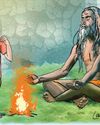
Gadai and the Monks
A fictional narrative based on incidents from the childhood of Sri Ramakrishna.
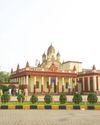
Chintayo momo maanosho Hori...
Sri Ramakrishna loved songs. There probably was no normal day when he did not sing some songs.
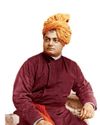
The Vedanta Vaccine
The world is still struggling under the impact of the pandemic due to Covid-19 for the last three years.
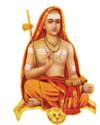
Chandrakirti's Chariot: Self in Madhyamaka Buddhism and Advaita Vedanta
The goal in Advaita Vedanta is the cessation of suffering and the attainment of true fulfillment. Suffering, according to this school, is due to ignorance of the true nature of the self and consequent erroneous identification with the body-mind.
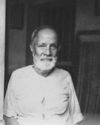
Reminiscences of Sargachhi
Question: यद्यदाचरतत श्रेष्ठसतत्तदरेवरेतरो जनिः। ‘Whatever a superior person does, others do the same thing!’ (Gita 3:21) – What does this statement mean?
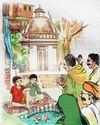
THE AUTUMN FESTIVAL
A fictional narrative based on incidents from the childhood of Sri Ramakrishna.
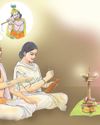
Bards of Guruvayur: Vilwamangalam II
Saints of India
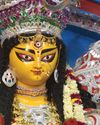
In the Universal Mother’s Divine Playground
Swami Vivekananda never taught the worship of Mother Kali. In a letter to Mary Hale he writes, “Kali worship is not a necessary step in any religion.
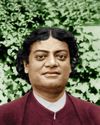
Swami Vivekananda: A Sportsman Par Excellence
In various books and articles, Swami Vivekananda has been called a spiritual leader, a prophet, a patriot, a social reformer, a philosopher, a yogi, a writer, an orator, an educationist, a musician, and so on.